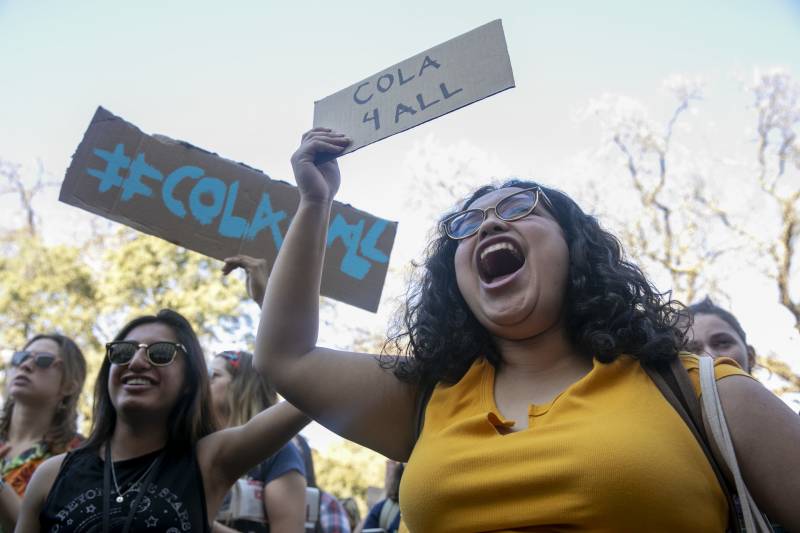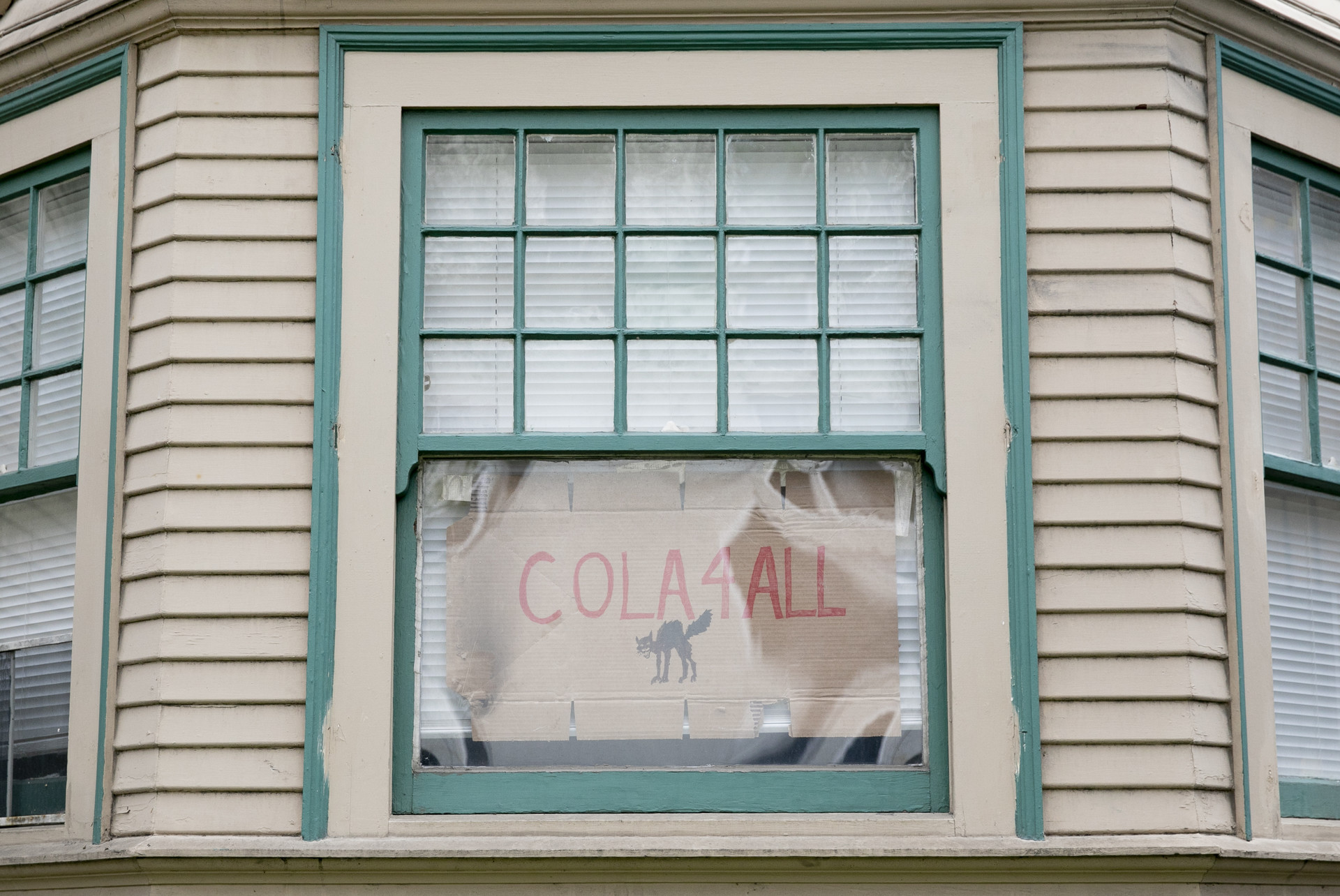The pandemic has exacerbated that stress, as campuses finish the academic year remotely and living conditions become working conditions. Graduate students say they are taking on additional work to help professors move classes online, while their educational and research experience has been upended by campus closures.
At UC Merced, teaching assistants have been helping science and math professors convert their courses into “flipped” classes, in which prerecorded lectures are given to students as homework and lecture time is used for students to split up into small groups facilitated by TAs, said Anh Diep, a graduate student and union representative.
“They’re becoming curriculum developers on top of being teaching assistants,” Diep said.
Diep added that those who left campus to live with their families now help run households, especially first-generation college students and those from immigrant backgrounds.
“Those students are caretakers — they’re helpers with siblings’ homework, elderly parents, relatives’ children, and they now have to do their homework and job while helping out the family,” they said. “I’ve seen [for those students] that the moment you come home, you become the point person to disseminate information to your family. You carry the mental burden of keeping up with the news, especially in this global pandemic, and needing to understand it and explain it to them.”
COLA organizers are trying to build bridges with undergraduates also affected by the pandemic. Some undergraduates have attended past COLA rallies, but others have expressed concerns about the movement affecting them.
When undergraduate allies of the UC Santa Cruz COLA organizers disrupted a computer science midterm in late February, it drew the ire of several students.
“It just appears to me that you’re having a [expletive] party complete with a live band every day on the lawn at the base of campus whilst I’m beating my brain against the wall through sleepless night after sleepless night to get a [expletive] undergrad degree at age 40, which feels humiliating enough when all my classmates are 20 years younger than me,” one commenter wrote on Reddit.
A subreddit dedicated to UC Santa Cruz students against COLA is filled with stories detailing students’ frustration with the protests’ effect on classes and research.
To strengthen ties with undergraduates, some graduate students at UC Irvine decided to hold a “social welfare” strike: Instead of teaching or grading, they’re compiling resource lists for students who need help with food, housing, child care or immigration cases. And they’re setting up mutual aid networks to connect those who need support to those who can provide it.
“The COLA campaign is […] a matter of public health, as people living in cramped or inadequate housing conditions due to low wages and high rent costs do not have the privilege of implementing ‘social distancing,’ ” reads a press release from the UC Irvine strikers. “Many students are living paycheck to paycheck and cannot afford rent, medicine or even food.”
Though the movement has become less visible in the wake of the pandemic, UAW plans to hold a vote this month on whether to authorize an official statewide strike linked to the unfair labor practice charges. (Two-thirds of members would have to sign off.) Union officials say they’ll ask UC to bargain over a cost of living adjustment that varies by campus depending on rents in the region.
Whether or not they succeed, Gilich said the COLA movement has already drawn attention to structural barriers to higher education.
“If you are not independently wealthy or willing to go into debt to go to grad school, you cannot survive here,” Gilich said. “A fight for COLA is a fight for the future of higher education and who will have access to it.”
Janelle Salanga is a fellow with CalMatters’ College Journalism Network, a collaboration between CalMatters and student journalists across California. This story and other higher education coverage are supported by the College Futures Foundation.
CalMatters.org is a nonprofit, nonpartisan media venture explaining California policies and politics.


